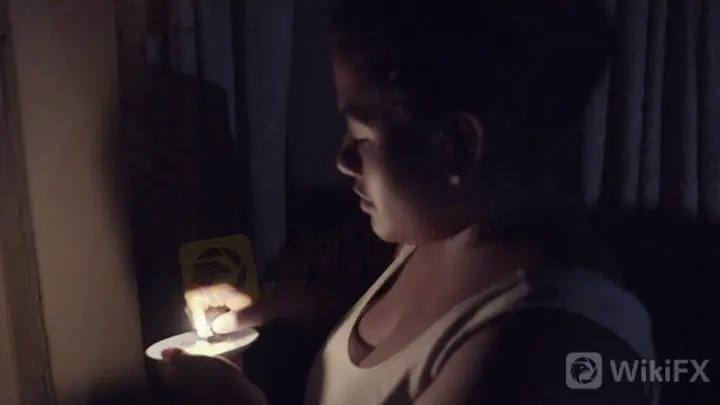简体中文
繁體中文
English
Pусский
日本語
ภาษาไทย
Tiếng Việt
Bahasa Indonesia
Español
हिन्दी
Filippiiniläinen
Français
Deutsch
Português
Türkçe
한국어
العربية
Venezuela crisis: Border with Colombia reopens after four months
Abstract:Image copyrightEPAImage caption Many Venezuelans crossed the border to buy basic goodsTens of thousa
Image copyrightEPAImage caption
Many Venezuelans crossed the border to buy basic goods
Tens of thousands of people crossed the border with Venezuela and Colombia after it reopened for the first time in four months on Saturday, officials say.
The crossing was closed in February at President Nicolás Maduro's request as opposition leader Juan Guaidó prepared to bring in US-backed humanitarian aid.
The country has faced shortages of basic supplies as a result of a severe years-long economic crisis.
More than four million people have fled Venezuela since 2015, UN agencies say.
According to Colombia's foreign ministry, more than 30,000 Venezuelans arrived on Saturday, with almost 37,000 leaving by the end of the day.
Crisis explained in 300 words
How the political situation escalated
All you need to know about the crisis in nine charts
The borders with Colombia, Brazil and Dutch Antilles islands were all closed earlier this year after the opposition organised the delivery of foreign aid, which was denounced by Mr Maduro as part of an effort to remove him.
Last month, Mr Maduro announced the reopening of the border with Brazil and the island of Aruba, but Aruban authorities said the border would remain closed.
Announcing the reopening of the border with Colombia on Twitter, Mr Maduro - who has blamed the country's crisis on a Washington-led economic war - said (in Spanish): “We're a people of peace that strongly defends our independence and self-determination.”
Image copyrightEPAImage caption
Thousands of people queued to cross the border
The closures had caused problems for towns along the border that have come to rely on Colombian cities for essential products and services, and many people have crossed illegally, at times having to pay tolls to criminals controlling passage.
Before it closed, some 30,000 people a day would cross the Simon Bolivar International Bridge every day, AFP news agency said.
The crisis in Venezuela deepened in January after Mr Guaidó, head of the National Assembly, declared himself interim president, arguing that Mr Maduro's re-election last year had been “illegitimate”.
He has since been recognised by more than 50 countries, including the US and most of Latin America. But Mr Maduro retains the loyalty of most of the military and important allies such as China and Russia.

Media playback is unsupported on your device
Media captionWhat are the real reasons behind Venezuelas blackouts?
In April, Mr Guaidó led a failed attempt to spark a military rebellion against Mr Maduro, who described the effort as part of a US-orchestrated coup.
Since then, close allies of Mr Guaidó have been arrested. While his parliamentary immunity has been lifted, he has so far not been jailed.

Media playback is unsupported on your device
Media captionVenezuela crisis: The four countries interested in the presidential battle
Meanwhile, Hollywood actress Angelina Jolie, special envoy for the UN refugee agency (UNHCR), said there was an urgent need for the international community to give greater support to Colombia, Ecuador and Peru, the three countries with the most Venezuelan refugees.
After meeting with Colombia's President Iván Duque in Cartagena, she warned that more than 20,000 Venezuelan children, born abroad to displaced families, were at risk of statelessness as their parents were struggling to obtain the necessary documents.
On Friday, the UNHCR and International Organization for Migration (IOM) said the exodus from the country meant that Venezuelans were now “one of the single largest population groups displaced from their country”.
Disclaimer:
The views in this article only represent the author's personal views, and do not constitute investment advice on this platform. This platform does not guarantee the accuracy, completeness and timeliness of the information in the article, and will not be liable for any loss caused by the use of or reliance on the information in the article.
WikiFX Broker
Latest News
Lawmakers Push New Crypto ATM Rules to Fight Fraud
2025 WikiFX Forex Rights Protection Day Preview
PH Senator Probes Love Scams Tied to POGOs
Mastering Calm: How to Stay Cool in Forex Trading?
The End of Costly USDT Transfers: Tron Reshapes Stablecoin Transactions
BP\s shareholders want it to make money, not climate policy
2025 SkyLine Guide Thailand Opening Ceremony: Jointly Witnessing New Skyline in a New Chapter
TriumphFX: The Persistent Forex Scam Draining Millions from Malaysians
Safety Alert: FCA Discloses These 11 Unlicensed Financial Websites
Why does Botbro change the domain name?
Currency Calculator






